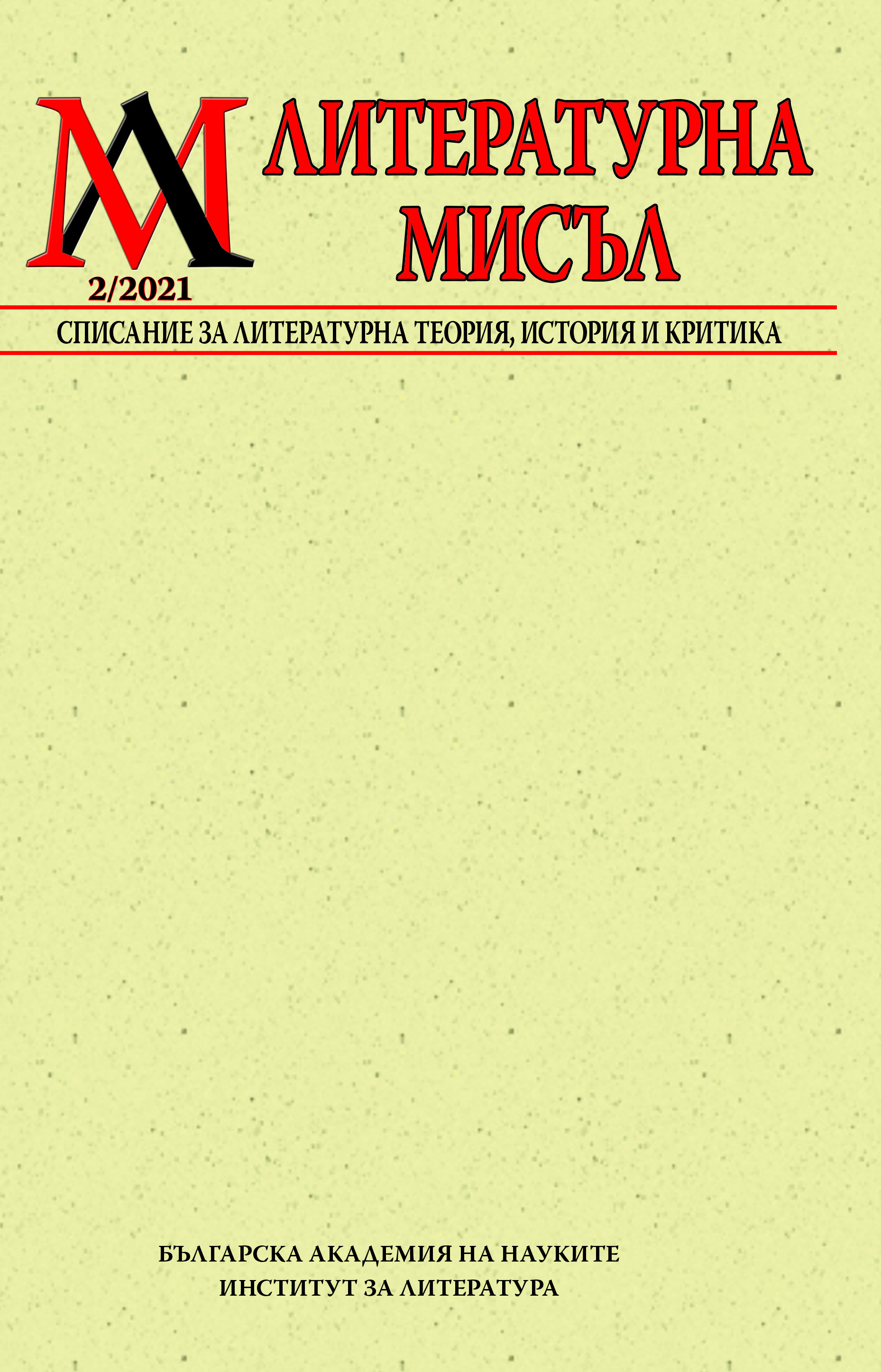
Клео Протохристова
Joie de vivre и Belle Époque според Джулиан Барнс
Cleo Protokhristova
Joie de vivre and Belle Époque According to Julian Barnes
-
Summary
The paper focuses on Julian Barnes recent book “The Man in the Red Coat” (2019) with the concern of exploring the interrelatedness of Belle Époque with the idea of joie de vivre. The analytical observations are contextualized against the backdrop of the occurrence and historical development of the notion joie de vivre and of certain corresponding literary thematizations.
Keywords: joie de vivre; Belle Époque; Julian Barnes; The Man in the Red Coat; Henri-Pierre Roché; “Jules and Jim”
Дмитрий Николаев
Жизнерадостният смях на Аркадий Аверченко
Dmirtij Dmitrievich Nikolaev
The cheerful laughter of Arkady Averchenko
-
Summary
The article analyzes the presentation of the pleasant aspects of life in the works of the Russian writer Arkady Averchenko (1880-1925). Averchenko himself enjoyed life and his life position determined the author's. Previously in Russian literature indulging in pleasures of life comic heroes most often were negative types. Averchenko created another type, who can have fun from life and can become a positive example for the reader. These, for example, are the heroes of his stories, „Podhodcev and two others.“ The writer's attitude to the Joie de vivre was one of the main characteristic features of his humorous works which attracted readers. At the same time, Averchenko categorically does not accept those who prevent others from enjoying life. Averchenko shows that the rejection of the normal joys of life is a direct road to death. This was manifested in his satirical works written after the revolution.
Keywords: Averchenko, Russian literature, humor, „joie de vivre“, comic characters
Дияна Николова
Joie de vivre – вариации по тема
Diyana Nikolova
Joie de vivre – variations on a theme
-
Summary
The study focuses on some emblematic variations on the theme of joie de vivre discernible with French Belle Époque writers and among representatives of the Russian Silver Age. The discussion also touches upon the manifestations of the overarching theme in the advertising industry, which constructs the consumers’ “paradise”. The delineated dialogues, which appear along the lines of the gallant feasts (fête galante), the isle of Cythère, the Golden Age, idyll and Harlequinade, develop in contexts that are marked simultaneously by resonating similarities and by divergent cultural, historical, and national particularities that account for their specific nuances
Keywords: Fête galante; Culture Industry; Silver Age; performing arts; Harlequinade
Мая Горчева
Утопичните острови на тропиците – възможни и реални
Maya Gorcheva
The utopian islands of the tropics – possible and real
-
Summary
In the European cultural tradition, the image of the islands brings together the geographical strangeness with a social utopia. The paper traces its historical alterations, as attested in documentary and literary travel stories, in comparison with Leibniz's thesis of the “best world”.
Keywords: islands; Tahiti; utopia; possible world
Николай Аретов
Една непубликувана сатирична творба на Васил Попович и нейният контекст
Nikolay Aretov
One unpublished satirical work by Vasli Popovich and its context
-
Summary
This paper presents the satirical works of Vasil Popovich (1833-1897), most of them unpublished in his lifetime, and analyses them in the context of their time – the debates about the standard language, about literature and the Bulgarian Literary Society from the end of 19th century. In the focus are also the conflicted relations of V. Popovich with Ivan Vazov, Aleksandar Teodorov-Balan, Vasil D. Stoyanov, and Konstantin Jireček. The tension between them is interpreted as a manifestation of their competition for symbolic capital and for gaining an important position in society and literature. As a supplement, at the end is added an unpublished text by V. Popovich from 1887, written in an imitation of Oldbulgarian/ Church-Slavonic language as a personal letter.
Keywords: Vasli Popovich; satire; Konstantin Jireček; Aleksandar Teodorov-Balan; Vasil D. Stoyanov; Orientalism; symbolic capital
Милена Цанева
До редакцията на сп. „Литературна мисъл“
Milena Tsaneva
Letter to Literaturna missal
-
Summary
In her letter to the editors, Professor Milena Tsaneva shares her doubts of the trustworthiness of some remarks in the “Notebooks-diaries” of Academician Petar Dinekov, published in Biblioteka Journal. Particularly, those regarding her father – Acad. Georgi Tsanev and the poet Nikola Vaptsarov. She quotes parts from the published memoirs of Hristo Radevski about Vaptsarov, as well as her own, and compares them to those written by Petar Dinekov.
Keywords: Milena Tsaneva; Georgi Tsanev; Nikola Baptsarov; Hristo Radevski; Petar Dinekov; memoirs
Фридрих Ницше
Относно истината и лъжата в отвъдморален смисъл
Friedrich Nietzsche
Über Wahrheit und Lüge im aussermoralischen Sinn
-
Summary
Translation into Bulgarian of a very early essay by Friedrich Nietzsche after the reprint of the continuous treatise from 1873 (Historical-critical Complete Edition of the Works, prepared by Hans Joachim Mette, LXXII f.).
Keywords: Friedrich Nietzsche; truth; lies; external moral sense
Вера Бонева
Български старопечатни издания в библиотеката на Софийския университет „Св. Климент Охридски“
Vera Boneva
Bulgarian Old printed Editions in the Sofia University Library „St. Kliment Ohridski“
-
Summary
The current text is a review of Anna Angelova's book „Bulgarian Oldprinted Editions 1806–1878: A study of the collection of the Sofia University Library „St. Kliment Ohridski“, 416 p., hardcover. The book includes two author's studies, a catalog of printed editions, stored in the library, and 734 handwritten notes from books and newspapers, left as written traces by owners, readers, and donors. The publication of the notes and a part of the author's analyzes are assessed as contributions to the history of the book. A number of criticisms have been formulated regarding the language normalization of manuscripts and titles and regarding the numerous typographical errors, which are noticeable in the book. My recommendation is for a more in-depth and extensive analysis of the studied corpus. Anna Angelova's book gives me a reason to keep insisting on a full digital corpus of the Revival editions and full-text publications of all old printed books on the Internet, including handwritten notes on them.
Keywords: Old printed editions; Revival epoch; Library; University